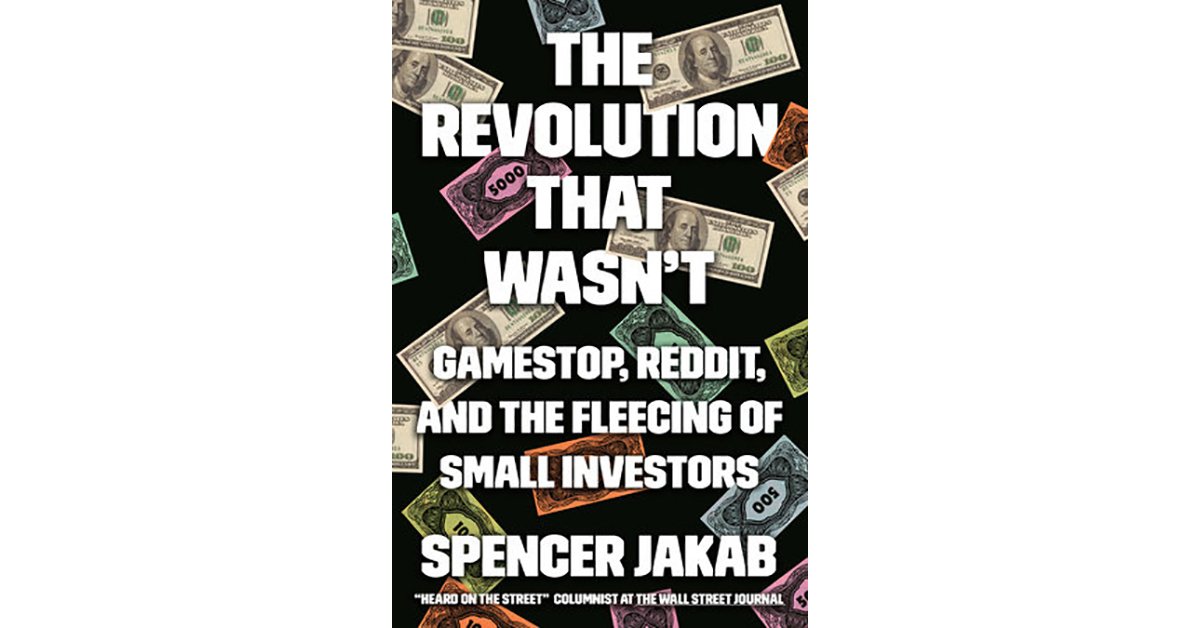The Revolution That Wasn’t: Gamestop, Reddit, and the Fleecing of Small Investors. 2022. Spencer Jakab. Penguin Random House.
Key Points:
- In his book, “The Revolution That Wasn’t: GameStop, Reddit, and the Fleecing of Small Investors,” Spencer Jakab challenges the notion that the 2021 GameStop short squeeze empowered retail investors.
- Jakab argues that Wall Street, not the everyday retail investor, is the ultimate winner in the meme stock revolution.
- Short squeezes facilitated on social media platforms like Reddit threaten the stability of the market and could lead to more bubbles in the future.
- The increased frequency of trading among retail investors, combined with a belief that they can outsmart the market, benefits Wall Street practitioners.
- The democratization of finance, touted by some as a positive development, may actually be a way for Wall Street to profit indirectly.
- Many new retail investors may learn the hard way and lose money, potentially discouraging them from further investing.
- Despite advancements in technology, Wall Street remains a place where investors often lose significant amounts of money.
In The Revolution That Wasn’t: GameStop, Reddit, and the Fleecing of Small Investors, Spencer Jakab, editor for the Wall Street Journal and former stock analyst, challenges the prevailing narrative surrounding the 2021 GameStop short squeeze. While the media framed it as a victory for retail investors, Jakab argues that Wall Street is the true beneficiary of the meme stock revolution.
Jakab highlights how social media platforms like Reddit have changed the dynamic of short squeezes. By utilizing online communities, retail investors can now “gang up” on short sellers, increasing the risk associated with taking short positions. This could lead to a reduction in short interest, ultimately resulting in more market bubbles. Unfortunately, retail investors are often the ones left holding the bag.
The rise of commission-free trading platforms has attracted a new wave of retail investors who believe they can outsmart the market. However, this active trading approach often leads to losses and leaves investors at a disadvantage. While Wall Street profits indirectly from these retail traders’ actions, many individuals end up losing money.
Jakab raises concerns about the long-term impact of this trend. Many retail investors who lose money early on may become discouraged from investing altogether, exacerbating the existing wealth disparity in the stock market. Despite technological advancements, Wall Street remains a place where everyday investors often lose money while trying to beat the system.
Overall, Jakab’s analysis challenges the notion of the democratization of finance. While there may be more accessibility for retail investors, the beneficiaries ultimately remain the same. Wall Street continues to profit while many retail investors bear the brunt of their losses.
If you found this article interesting, consider subscribing to the Enterprising Investor for more valuable insights.
All posts are the opinion of the author and should not be considered investment advice. The views expressed do not necessarily reflect those of CFA Institute or the author’s employer.
Professional Learning for CFA Institute Members
CFA Institute members can self-report their professional learning (PL) credits earned, including content from the Enterprising Investor. Keeping track of credits is easy with the online PL tracker.







